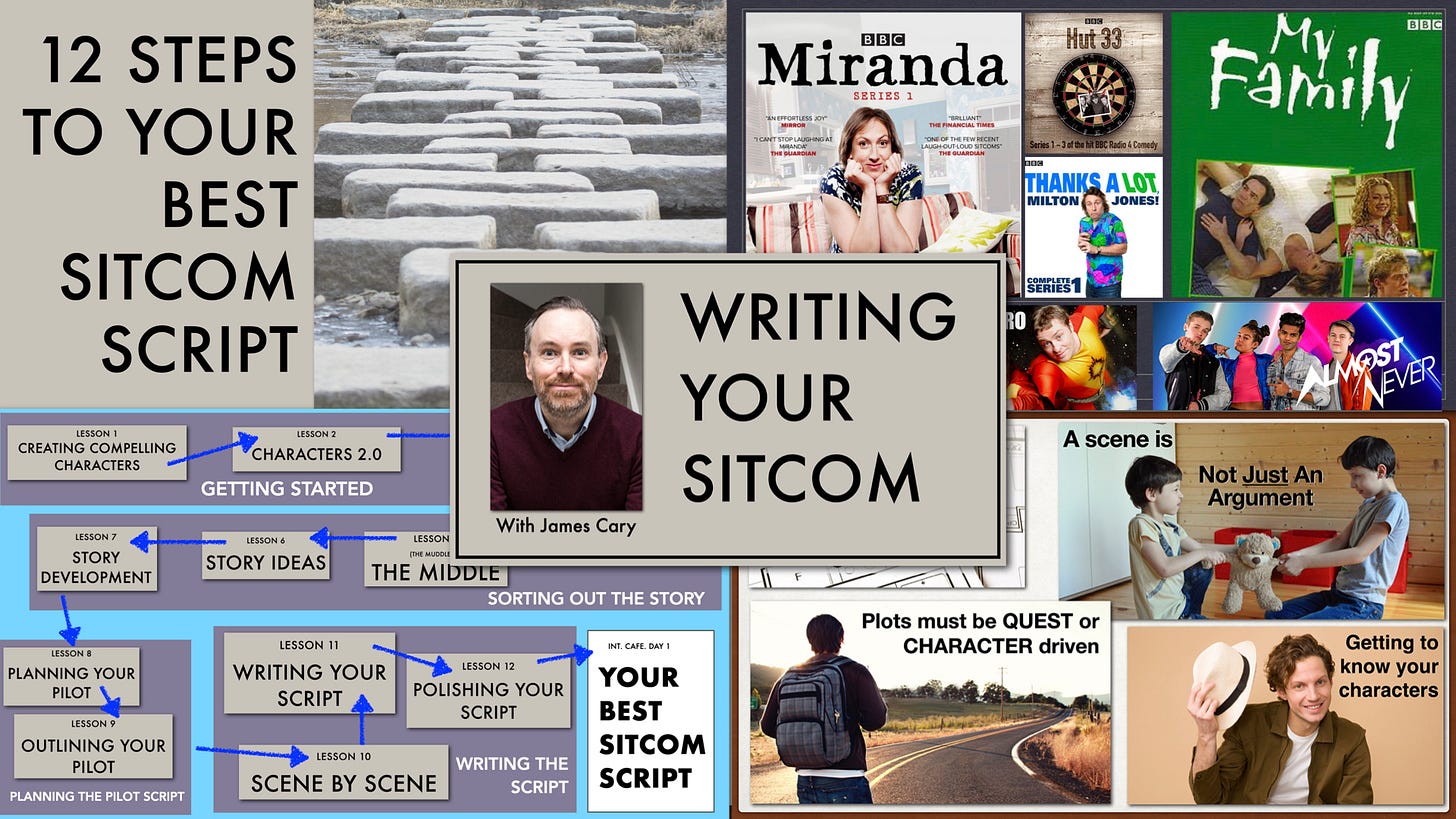How to Find Out if Your Script is Funny
And the sound of a kayak moving across a carpeted floor.
I always recommend getting some actors together to read through your script. It’s painful, and it’s nerve wracking and you will be very glad you did it. You will discover very quickly if your script is good, or at least has potential, or is a hot mess.
In reality, the fact you’re getting actors together to read it through will focus the mind. You will work on it to the point that it probably won’t be a hot mess. But you never really know until you start.
And if you can then read it through in front of any kind of audience, do that. Penny did. She’s a friend of mine and when she told me she was about to have a readthrough of two episodes of a sitcom she had written, I asked her to write about it. And she did.
Want to know how it went? Sure you do.

Penny writes:
As a new(ish) comedy writer, I recently wrote my first radio sitcom, The Hostel. I had been on courses, read books and blogs, listened to podcasts and other radio comedy sitcoms and after a mere fifteen years, I realised I couldn’t delay the moment any longer.
I wrote the first two half-hour episodes of a workplace sitcom (I know, I know). A radio sitcom is meant to be heard, not read on a page, so I wanted to find out if it worked, and mostly, if it was funny.
I have belonged to a group of professional actors and writers for a long time and the main purpose of the group is to perform and critique a new writing project to help the writer to progress their idea. It is a nerve-wracking process, from the ordeal of submitting your script for selection, to the casting, rehearsal, performance and critical feedback from your peers. However, it is useful and arguably necessary to go through a process like this.
We gathered on a Sunday at the director’s beautiful, rambling Victorian house in Chiswick and rehearsed. The first learning experience was that for “other parts played by members of the cast” there have to be enough cast so that people aren’t having conversations with themselves – rookie error – but it has given me the chance to correct it.
Secondly, it allowed me to see and amend any repetition, or strengthen any lines or jokes. The cast was invaluable in helping with this.
The third thing I found was that I felt reassured. The wonderful actors lifted the comedy off the page and added a third dimension, bringing their acting gifts and experiences to elevate the writing. Also, the wise input from a director, who found it hilarious and spent most of the rehearsal giggling, brought more to the episodes than I had envisaged.
The fourth thing was the sound effects. For a radio sitcom, sound effects are an essential part of setting the scene. My sound person should be elevated to sainthood. Four days and 103 sound effects in two 30 minute episodes was a lot for me to ask, and she didn’t even balk at “THE SOUND OF A KAYAK MOVING THROUGH SHALLOW WATER ACROSS A CARPETED FLOOR.”
The reading took place before an audience of actors and other writers the following evening. It seemed to go by in a flash, and I was determined to enjoy the performance as most of my analysis had been done the day before. There were unexpected laughs and expected laughs that didn’t materialise, but the sound effects went down an absolute storm! There was applause at the end, and no one left at the interval, which would have been a sure sign of boredom.
The feedback that followed was helpful. It was done live, with a discussion leader and me sitting at the front. The comments included suggestions on plot, character and helping with clarification. I wrote down the comments, with the intention of later sifting and taking on board those that are useful.
It was a positive experience, because I know the sitcom worked, and I’m encouraged to do more work on those two episodes and I have started on the third. After that, who knows what will happen to it? That is another day.
The group is Actors and Writers London www.actorsandwriters.london which meets every 2 weeks in Hammersmith. You have to become a member for your work to be read and critiqued.
Thanks for sharing that, Penny! It’s great that you – and your script – survived the ordeal.
There’s a lesson there in being a member of group, embracing community and making the most of the contacts you have. If you were to approach a local amateur theatre group, I’m sure they’d be happy to give your script a go, even informally, although they may wish to check the script first.
In the past, I’ve recommended JY Savile’s delightful audio comedy, Leanne’s Spare Fridays. If you’re wondering about making your own audio comedy, Jacqueline’s explanation of how and why she did what she did with the show is well worth your time:
She also kindly mentions doing my comprehensive sitcom course which is still available here:
Writing Your Sitcom is a course that you can do at your own pace, but I help you set some deadlines and make the most of it. It comes with tons of bonuses, and a money back guarantee, no questions asked. That’s a promise. It’s not cheap and you need that assurance. Earlier this year, I refunded someone who bought it but just couldn’t get on with it. And I didn’t ask questions. Maybe I should have done to find out what was wrong. But a promise is a promise. Anyway, I refunded her. No-one else has asked. Anyway, have a look if you think it might help.





